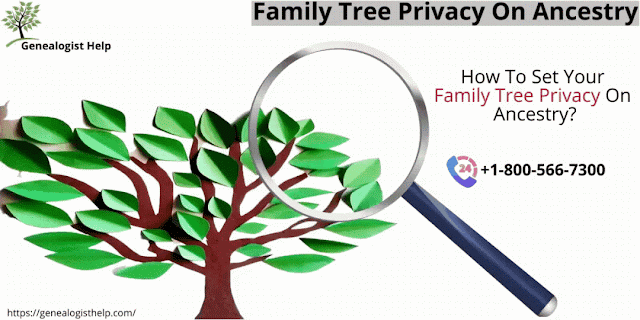Family tree privacy on Ancestry
Ancestry
In general, the terms ancestry and ancestors frequently refer to a general connection to
people or things from the past. However, they have a more specific meaning in a
genetic context: your ancestors are the people from whom you are biologically descended, and ancestry is
information about them and their genetic
relationship to you.
However, confusion arises from the manner in which ancestry is presented in front of
people. Rather than emphasizing its complex structure, results are frequently
reduced to discrete categories. While this is convenient and sometimes useful,
it ultimately misleads about the nature of
ancestry. These labels can also impose modern political or cultural
divisions that may be inaccurate representations of ancestral relationships.
Ancestry
fundamentally connects genetics and society. It has cultural, religious, and
even political significance for many people, and it can play an important role
in shaping personal and public identities. People's desire to learn about their
ancestors fuels the multibillion-dollar genealogyindustry, which has expanded rapidly in the age of consumer genomics.
 |
Companies like 23andMe
and Ancestry now have tens of
millions of customers around the world. Simultaneously, studies of ancient and
modern genetic data, which allow us to track changes in ancestry over space and
time, are transforming our scientific understanding of the human past. To infer
and visualize these relationships, sophisticated methods have been developed.
As a result, it appears that both scientists and the general public are
learning more and more.
What is the Difference between Genealogy and Ancestry ( Family History )
Even many professional researchers use the terms
genealogy and family history interchangeably when discussing ancestor research.
What's the difference between them? They both involve looking for information
about your ancestors, so what's the difference?
Genealogy
is the study of families, their ancestors, and the tracking of their ancestors.
Genealogists uses authentic
records, hereditary analysis, and other different records to acquire data
about a family and to exhibit connections and families of its members. So that
equates to two parents, four grandparents, eight great grandparents, and so on.
Once upon a time, genealogy
was reserved for the wealthy and those with plenty of free time and the ability
to visit physical archives during normal business hours. Its primary purpose
was frequently to establish a familial relationship for the purposes of
inheritance.
The use of DNA testing in conjunction with traditional genealogy and historical
records to infer relationships between individuals is referred to as genetic genealogy.
In my opinion, family history is genealogy come to
life. Family history takes genealogy to the next level by looking beyond names,
dates, and places to place your ancestors' lives in context and to unearth
family stories, legends, and myths.
Family
history examines the entire family unit in each generation,
including when, where, and how they lived, worked, played, and travelled, as
well as the family triumphs and tragedies that occurred, and, perhaps most
importantly, places these events within the context of the social, economic, historical, and environmental world in which your
ancestors lived.
Family history can't judge your ancestors
according to modern standards and legislation, but rather to comprehend the
environment, attitudes, and legislation in which your ancestor lived.
It is said that we do not own our forefathers'
victories and are not responsible for their actions.
Family history can also include members of the family
who became a part of the family through adoption, both informal and formal, and
marriage.
Comments
Post a Comment